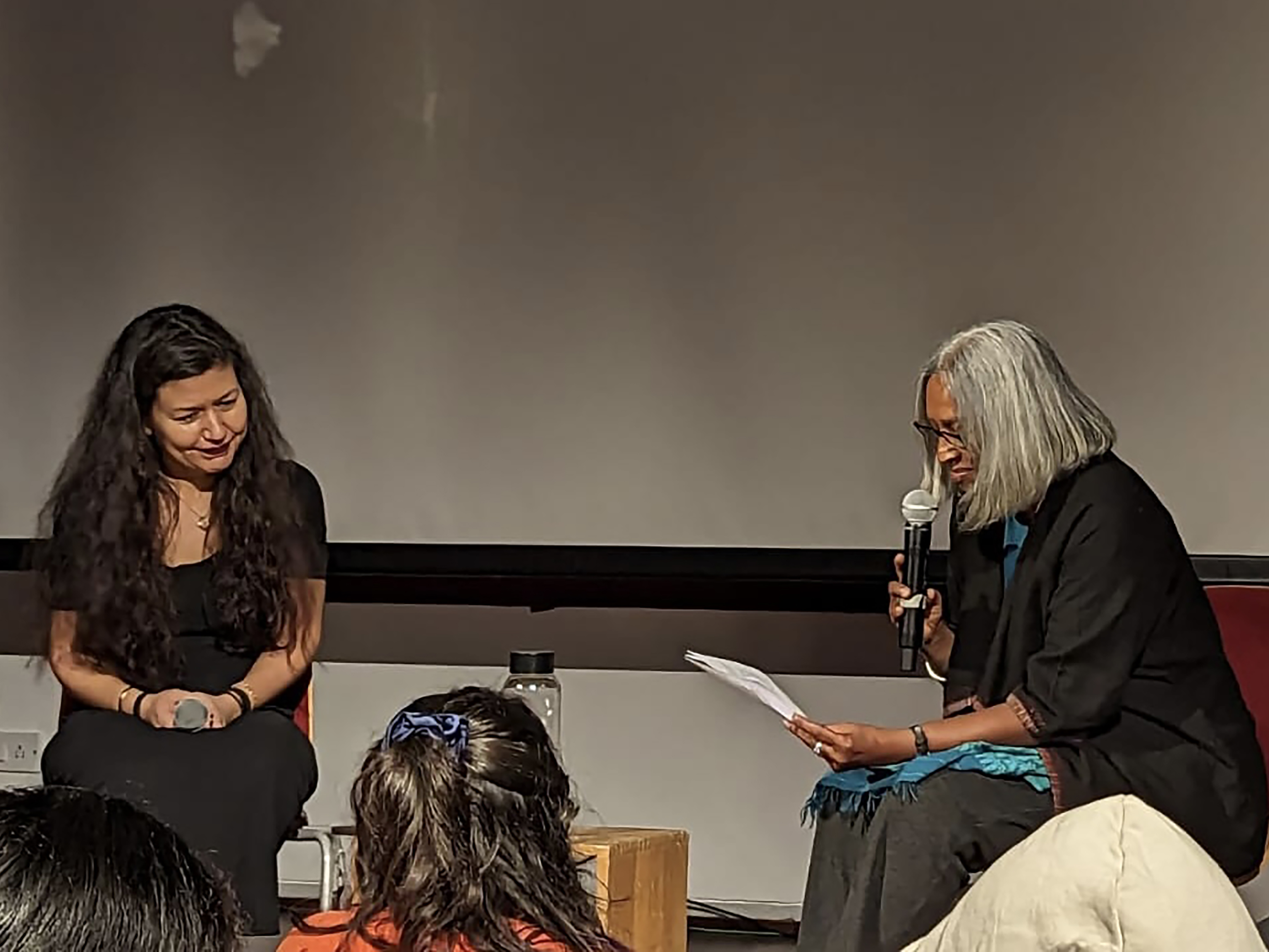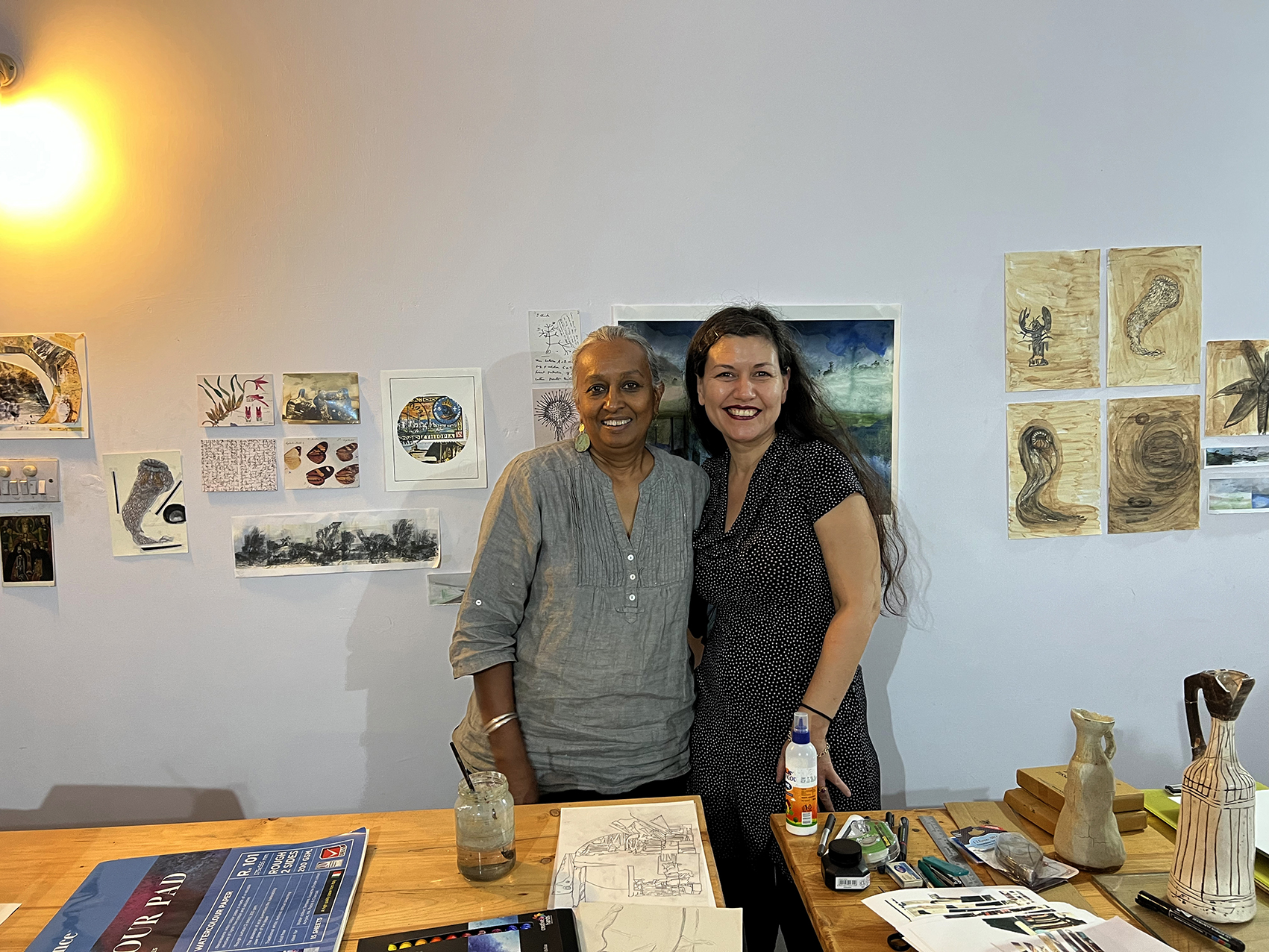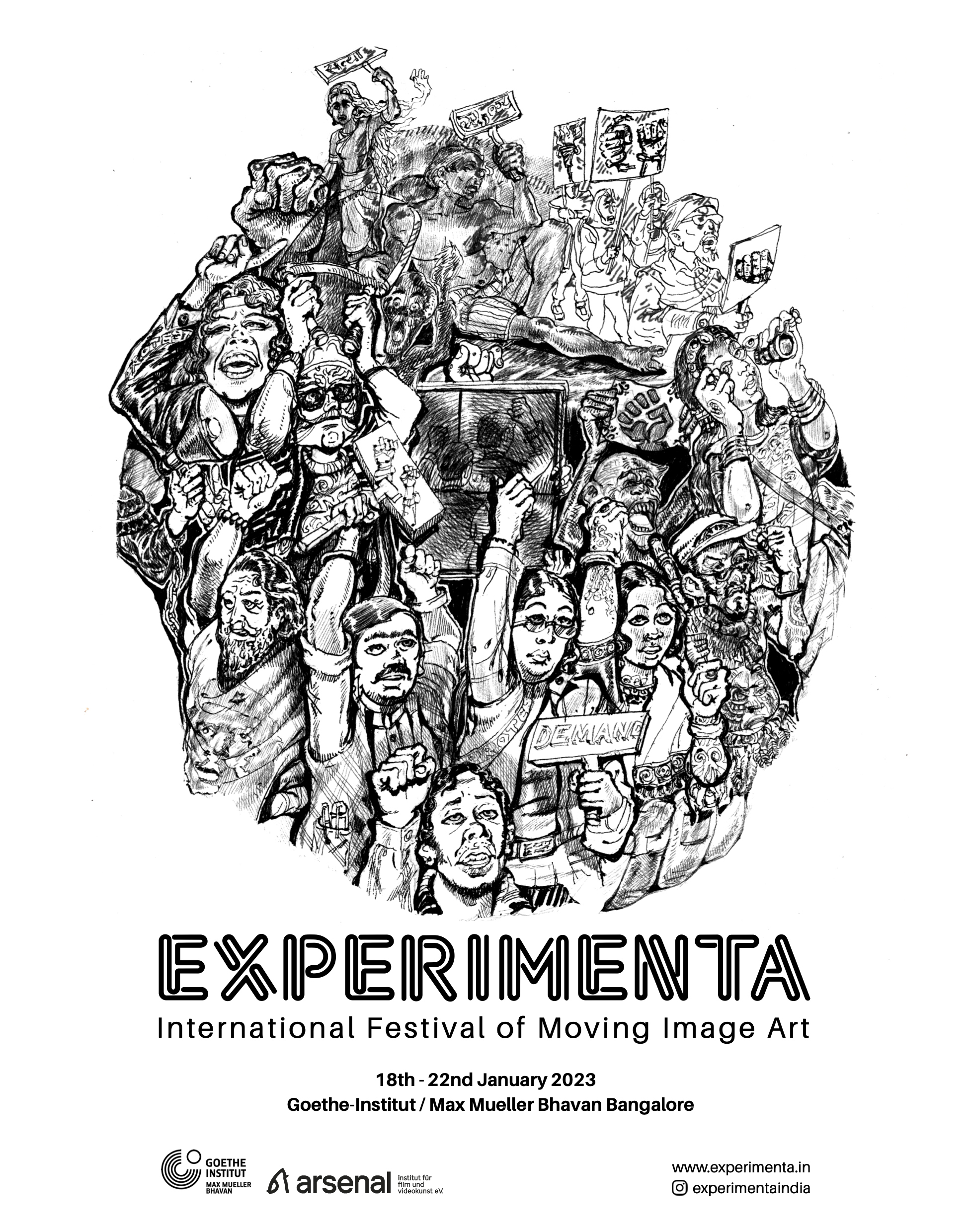Experimenta International Festival of Moving Image Art in India

Ayisha Abraham and I at the Q&A (photo by Himanshi Parmar)
I haven’t experienced such a warm and super engaged audience in a while – no doubt it was in part owed to the gracious and generous introductory words by Ayisha Abraham. Here is her introduction to the Q&A, reprinted with kind permission:
"I wrote this a few days ago when I was first introduced to Sylvia’s work online. She subsequently invited me to show my found footage films in her classroom at Srishti. She called our exchange a kinship, and we have now held on to this term to describe our communication through the sheer pleasure of working with found footage and the processes of mining it.
Sylvia’s films seem to span a taut canvas of the accessible and the difficult. In a simple, straight forward narrative, she chronicles the journey across oceans, and a maelstrom of emotions, as her parents break the boundaries of love and work, to venture across cultures, to trail blaze new paths. In the difficult films, strobe lights refuse to settle on image or story, defying any logic of montage and meaning-making, revisiting found footage in its original form of fragments, and momentary slices and splices. Her body of work, evokes the body politic of people, and natural ecosystems, bringing us closer to what is found and what is lost, not just in film and memory, but in life and in existence itself. Be it in the felling of forest trees, and my favourite by the way, is the abstraction just before the ominous last image of a saw before it fells the tree, that crashes to the ground. It no longer remains ‘abstract’ or ‘anti-narrative’, or ‘experimental’ in its non-meaning mode, but it clinches an ethical outlook to the ways of the world and says it all, simply, in essence - the rapacious colonization of the human upon natural worlds.
These found footage films are effortless and powerful, and they are personal, or they vacillate between being outward to being very personal, and it makes the footage that Sylvia finds and works upon, a platform, a medium for expression. Perhaps her body of work is a way to define experimental film itself, perhaps it is closest to living itself, breathing in and out, because it is both simple and difficult, and it distinguishes itself from any industrial/commercial format.
These are my thoughts, but let me ask you about this swaying between the simple narrative and the difficult abstraction. I ask this because I found myself struggling as I faced the daunting stack of unkempt film in dusty boxes. That is struggling to decide on whether the way I edit the films should be simple or difficult, narrative, or abstract, veiled or revealed.”
More photos from Experimenta
 Shai Heredia, Founder of Experimenta
Shai Heredia, Founder of Experimenta

Introducing my films (photo by Sohrab Hura)

Visiting Ayisha's studio (photo by Katrin Emler)
 Experimenta International Festival of Moving Image Art in India
Experimenta International Festival of Moving Image Art in India